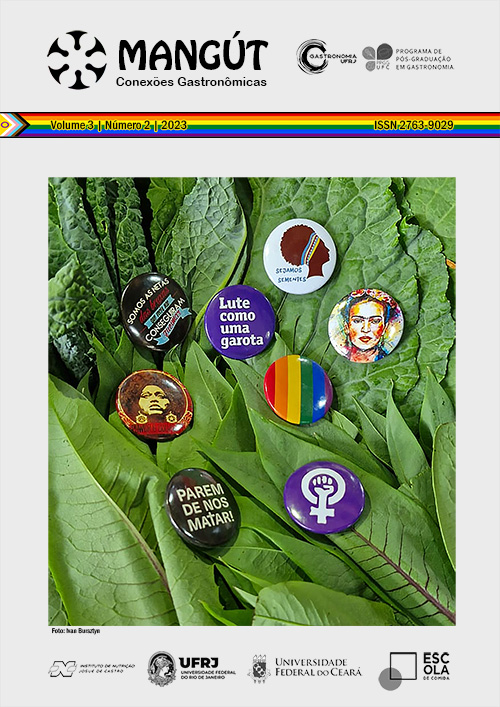How food is thinked, made and eaten at school: the PNAE and meanings about food among canteen women and children in the municipality of São João Batista do Glória at Minas Gerais
DOI:
https://doi.org/10.70051/mangt.v3i2.58929Keywords:
Gastronomy, National School Feeding Program, Socio-anthropology of food, Women's domestic work, School food cultureAbstract
Based on the assumption that food is central to thinking about the social organization of human societies and that the perception of what is considered healthy or tasty is relative to the historical and cultural experiences of each society, this paper makes a reflection, based on an experience report of an extension project on the implementation of the National School Feeding Program (PNAE) as a public policy in the municipality of São João Batista do Glória, Minas Gerais.In this sense, it was identified that beyond objective issues related to the production, purchase, preparation and consumption of food from local family farming, it is necessary to pay attention to symbolic aspects that involve the potential for the full implementation of the programme. Thus, it is of utmost importance to pay attention to the agency of two fundamental social actors in this gear and in the re-elaboration of food heritages: the women who produce school meals, known as “canteen workers” and the consumers of these foods, in this case, the children.
Downloads
Published
Issue
Section
License
Copyright (c) 2024 Camila Guedes Codogno

This work is licensed under a Creative Commons Attribution 4.0 International License.
Autores que publicam nesta revista concordam com os seguintes termos:
- Autores mantém os direitos autorais e concedem à revista o direito de primeira publicação, com o trabalho simultaneamente licenciado sob a Licença Creative Commons Attribution que permite o compartilhamento do trabalho com reconhecimento da autoria e publicação inicial nesta revista.
- Autores têm autorização para assumir contratos adicionais separadamente, para distribuição não-exclusiva da versão do trabalho publicada nesta revista (ex.: publicar em repositório institucional ou como capítulo de livro), com reconhecimento de autoria e publicação inicial nesta revista.
- Autores têm permissão e são estimulados a publicar e distribuir seu trabalho online (ex.: em repositórios institucionais ou na sua página pessoal) a qualquer ponto antes ou durante o processo editorial, já que isso pode gerar alterações produtivas, bem como aumentar o impacto e a citação do trabalho publicado (Veja O Efeito do Acesso Livre).



